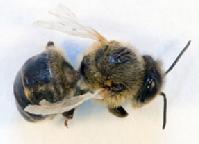Life Sciences News
See our Latest Journal Publications
Focus on naturally occurring protein to tackle dementia
Researchers led by Dr Sonia Correa have provided the first evidence that the lack of a naturally occurring protein is linked to early signs of dementia.
Published in Nature Communications, the research found that the absence of the protein MK2/3 promotes structural and physiological changes to cells in the nervous system. These changes were shown to have a significant correlation with early signs of dementia, including restricted learning and memory formation capabilities.
Engineering Synthetic Microbial Communities for Biomethane Production
A BBSRC-funded team led by Prof Orkun Soyer is investigating how to use methane-producing microbes, known as methanogens, to generate renewable biofuels.

First national model for Bovine TB calls for more focus on cattle
In a study published in Nature this week, Professor Matt Keeling and fellow researchers have produced the first national model to investigate the bovine TB spread.
The results derived from the model in the Nature paper, entitled “A dynamic model of bovine tuberculosis spread and control in Great Britain”, demonstrated that the majority of herd outbreaks are caused by multiple transmissions routes - including failed cattle infection tests, cattle movement and reinfection from environmental reservoirs (infected pastures and wildlife). The study suggests that improved testing, vaccination of cattle and culling all cattle on infected farms would be the most effective strategies for controlling the disease.

Bloodsucking mite threatens UK honeybees
 A study led by Professor David Evans has discovered how a bloodsucking parasite has transformed Deformed Wing Virus (DWV) into one of the biggest threats facing UK honeybees.
A study led by Professor David Evans has discovered how a bloodsucking parasite has transformed Deformed Wing Virus (DWV) into one of the biggest threats facing UK honeybees.
The paper "A Virulent Strain of Deformed Wing Virus (DWV) of Honeybees (Apis mellifera) Prevails after Varroa destructor-Mediated, or In Vitro, Transmission" is published in PLoS Pathogens.
The project is part of the Insect Pollinators Initiative, jointly funded by the Biotechnology and Biological Sciences Research Council (BBSRC), Defra, the Natural Environment Research Council (NERC), the Scottish Government and the Wellcome Trust under the auspices of the Living with Environmental Change (LWEC) partnership.

BBC Radio 4 visits Warwick Crop Centre
On Friday 12 August, BBC Radio 4’s Farming Today programme visited the Warwick Crop Centre to find out about research to increase vegetable yields, and quality, in the face of increasing pressures on climate change and food security.
The programme includes:
- Dr Rosemary Collier investigating sources of resistance to lettuce pests.
- Dr Charlotte Allender discussing the use of carrot diversity sets to look for useful traits such as disease resistance and tolerance to drought.
- Dr Graham Teakle examining nitrogen-use efficiency in oil seed rape.
Listen to the programme on BBC iPlayer
Find out more about Warwick Crop Centre
